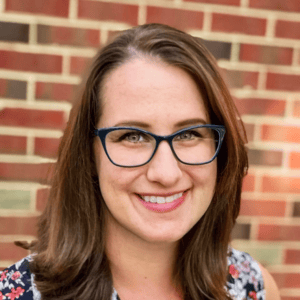
Sarah Weicksel
Dear Colleagues,
It is a privilege to write to you as the new executive director of the American Historical Association—and to thank you for your continued engagement with our collective work.
I have been a member of the AHA since I was in my first years of graduate school, at which point I admittedly thought that “the AHA” was just a large conference. I quickly learned that it was much more. As a first-generation student who grew up on a small farm, I found the world of professional history not only unfamiliar, but at times exclusionary. I could explain the skills (and luck) required to produce a raisin crop far better than I could tell you how I was supposed to navigate graduate school, professional conferences, publishing, or what might come next. But I learned through trial and error and the help of supportive advisors—one of whom directed me to the AHA’s website, where I found professional guidelines and articles that demystified the pathway to, and responsibilities of, being a historian.
Since then, I have done a variety of things that historians do: historical research for a book and articles, exhibit curation, teaching, public speaking, history advocacy, curriculum and program development, and more. I have taught graduate and undergraduate students, consulted on historic house reinterpretation projects, cataloged collections, managed an oral history project, and served on hiring and program committees. I have worked where some historians work: universities, small and large museums, and a professional association. I provide a historian’s perspective on a federal advisory committee and serve on the board of a small historic site.
But there are many more ways of being a historian and to engage with history. My experiences have led me to advocate for a discipline that is not a closed community to which one must gain acceptance, but rather a space of welcome and support—a means of connecting people who care about learning about, and from, the past.
Today’s AHA is not the AHA that I first joined in the early 2000s. Its resources are more vast, its programming more accessible, and its history advocacy work more central. For that, I thank my predecessor, Jim Grossman, whose tireless work created the strong foundation upon which we will build in the years ahead.
This is a challenging time for our discipline and the humanities more generally. As I look to the future, I am guided by the AHA’s 1889 Congressional Charter and its charge to work for the “promotion of historical studies” writ large. We must embrace that original charge and continue to open the AHA’s doors more widely to the larger community of those who work in history, those who were trained as historians and work elsewhere, and those who simply love learning about the past. That means fostering an environment where people with diverse experiences and backgrounds can engage, disagree, and learn from one another.
It is my privilege to work with the elected AHA Council and the committee members who volunteer their time and expertise in support of the work of historians. And it is my great fortune to now lead a staff of 19 talented people who work hard every day on behalf of our members and our discipline. That work is crucial in the challenging landscape in which we find ourselves. We work together in support of an expansive historical discipline, advocate for the importance of history, and promote collaboration and innovation that brings historians’ work into more aspects of public life.
I have had the pleasure of meeting many members during my five years as the AHA’s director of research and publications, and I look forward to meeting many more of you in the coming months. Until then, I invite you to get in touch with me as we chart pathways forward for history and all historians. You can reach me at executivedirector@historians.org.
Sincerely,
Sarah Weicksel, PhD
Executive Director